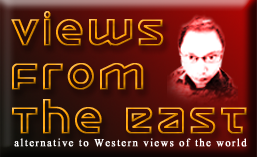US President Barack Obama has recently concluded a four-country tour of Asia, ending it with a rather undeniable reassuring that America will remain the dominant military force in the region.
The visit does not pretend to be about anything else, with a first-stop visit to Japan (presently involved in tense territorial disputes with China) and ending with a renewed military agreement with the Philippines.
Obama’s visit also reassured the region besides military obligations, including the muddled Trans-Pacific Partnership (TPP) agreement which aims to lower trade barriers between the most economically dynamic region in the world and the US.
In hindsight, all of these ‘high-profile’ gestures highlight what was missing: the involvement of China.
Military Intimidation Shrouded in Neutrality
The message is clear since Obama’s ‘Pivot to Asia’ proclamation in 2011: lest it forgets, the US must reassure China that no other power should try to ‘change the status quo’, for better or for worse. This ‘rebalancing’ of power, a shift of US military emphasis from the Middle East to the Pacific (China’s borders, from the Pacific to South Asia), has been cheerfully greeted by the region’s leaders.
Obama’s visit to Japan finally shows that the Washington is not neutral in the island disputes in the region. In a press conference in Tokyo, he stated that the US and Japan have a mutual security treaty that covers the disputed Senkaku/Diaoyu Islands–a complete about-face to his past statements regarding territorial disputes between China and Japan.
Benigno Aquino, President of the Philippines, (son of former President Corazon Aquino who was put to power by the American government in the late 1980s), hailed a new ten-year defense pact with the US as an agreement that “reaffirms our countries’ commitment to mutual defense and security, and promotes regional peace and stability.”
One common theme in this is their willingness to be part of Washington’s new focus on Asia. Indeed it seems to ‘work’ both ways: with the waning of American military power the US pushes these countries to be more aggressive against China, while the same countries can focus on developing their economies and outsource their defense and security needs to Washington.
Economic Partnership a “Bridge to Far”
Actively promoted by the United States, the Trans-Pacific Partnership (TPP) aims to give China’s neighbors an alternative to Beijing’s economic clout through less trade barriers and bureaucracy. China’s economic might, role, and influence in the global economy is undeniable. As such, a trade agreement that fails to include the second-biggest economy in the world (some speculate it to surpass the US as early as 2016), is a failure in itself already.
For instance, in the bilateral trade between Japan and the US, there has been suspicion on both sides about unfair government protectionist policies (Japanese automobile industry) and unfair government subsidies (US agriculture). Obama’s latest visit just showed how difficult it is to accomplish anything beyond the trade barriers.
And history is on the side of the free trade skeptics: today it is widely accepted that free trade agreements are discriminatory by nature, which is the reason why most economists today prefer to call the free trade agreements (FTAs) as preferential trade agreements (PTAs).
Indeed, the more Obama denied his visit was not about China, the more it was perceived as being about militarily and economically containing China.


